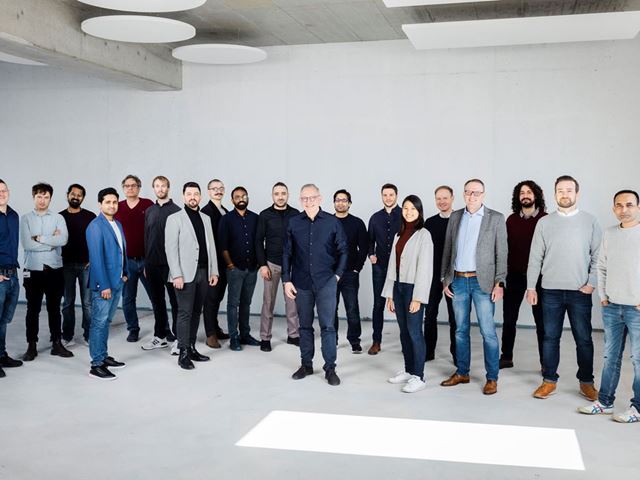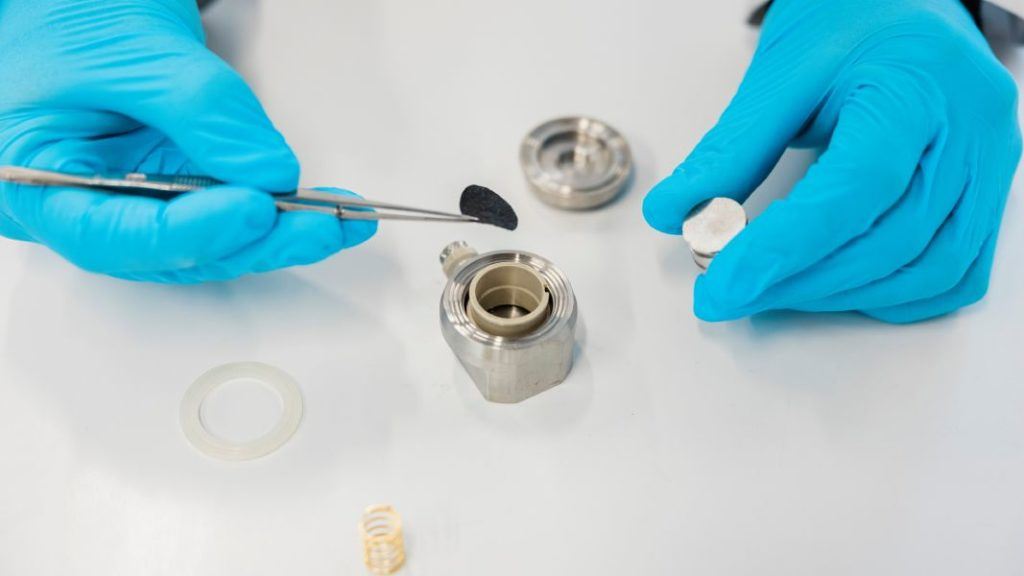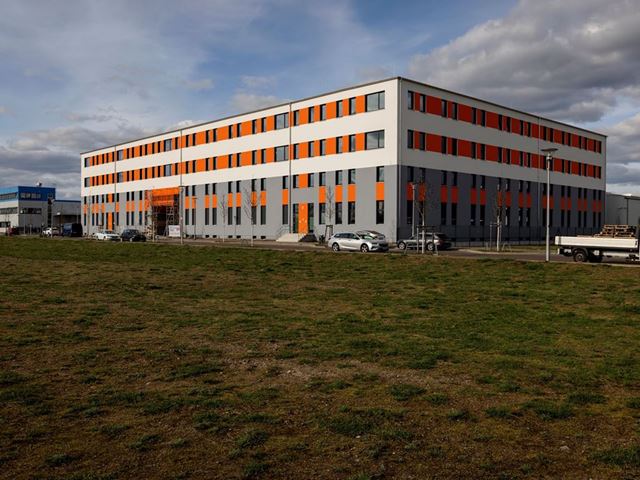
- Latest: Welcome to Auto Futures - Mobility News, Features, Exclusives and More...
- Latest: Subaru Europe Unveils the Brand's First All-Electric Compact SUV
- Latest: Lucid, Nuro & Uber Partner on Next-Generation Autonomous Robotaxi Service
- Latest: GM & Redwood Materials to Repurpose EV Batteries for Energy Storage
- Latest: Stellantis Discontinues Hydrogen Fuel Cell Technology Development Program
- Latest: Paving the way for an Electrified Future - L-Charge CEO
Disrupting the Battery & Energy Storage Markets Using 'Mother Nature’s Crystals' - theion CEO Dr. Ulrich Ehmes
Adrian Smith
- Sep 18 2023

Sulfur is an abundant material that's available worldwide. Germany's theion's battery technology is deploying it as a cathode material. For energy storage applications it substitutes lithium with sodium, a component of ordinary salt. The Berlin-based company has just welcomed Enpal, a greentech 'unicorn', as a strategic investor.
"The company started in 2020 with a lot of experience and a solid concept, so had a significant headstart," Dr. Ulrich Ehmes, CEO of theion, tells Auto Futures.
"70% of a battery’s cost is the material. And half of that is the cathode material. In order to bring the cost down and the performance up, the right choice of the cathode material is key. Today’s cathode materials - like NMC (nickel manganese cobalt) and LFP (lithium ferrophosphate) - are costly and difficult to source due to Europe’s high dependency on Asia, mainly China," says Dr. Ehmes.
Theion replaces cathode materials, with high processing cost and high metal content like nickel and cobalt, with sulfur.
"(It) is a waste material from other industries and available for a fraction of the price of standard cathode materials. Beside that, sulfur has a five times higher specific energy density than the standard materials deployed."
“We are using mother nature’s crystals under the guidance of our patented processes to unlock sulfur’s full potential as energy carrier,” comments Marek Slavik, Theion co-founder and CTO.
Dr. Ehmes explains the further advantages of using sulfur as a cathode material in its 'crystal batteries'.
"Sulfur in its crystal form has an ideal allotrope to store energy. Our co-founder found ways to process the sulfur in order to overcome the common challenges, the cycle life limiting polysulfide shuttles and the volumetric expansion. With a Lithium Sulfur battery it is possible to extend range by factor three and also bring the cost down by a factor three. Sulfur combined with sodium, instead of lithium, will bring the cost again down and is ideal for stationary storage."
Sulfur-based batteries are also safer than li-ion batteries, he says.
"The absence of oxides on the cathode means there is no oxygen which can burn. Another advantage is that we are able to replace the liquid inflammable electrolyte with a polymer electrolyte."

From Aerospace to Automotive...
Theion's crystal batteries are designed with recycling in mind.
"State-of-the-art batteries contain nickel, manganese, cobalt, aluminium and copper, all of which have high melting temperatures and therefore a lot of energy is required in the recycling process. We use materials with low melting points and focus on recycling the lithium. All other materials are cheap and widely available," says Dr. Ehmes.
The company will firstly target aerospace customers, followed by aircraft, air taxis, drones, mobile phones and laptops, before servicing the electric flight and automotive sectors in 2024.
"We are starting with well-defined markets which will significantly benefit from our lightweight batteries for application that will extend their operational range, like commercial rockets, aircraft and drones. Whilst these are currently relatively small markets, this allows the business to organically scale mass production. In parallel we intend to qualify the stationary storage applications and the biggest market, the automotive industry. This will take more time as the validation processes are longer."
Its first 'small scale production line' will be located in Germany.
"We are targeting a low Gigawatthour capacity per year. This will enable us to serve customers of special markets and also to qualify for larger markets. The plant will be built in a way that it is scalable to large production capacities."
"As the raw materials are available nearly everywhere and no pre-processing is needed, smaller plants can be sited close to our customers that will produce battery cells with a competitive price. With a tenth of Gigawatthours, economies of scale are less of an issue and therefore the CAPEX is much lower," he adds.

A State Of High Dependency
The German greentech company Enpal has become a strategic investor in theion. The funding will be used for accelerating its product and process development.
Henning Rath, Chief Supply Chain Officer at Enpal, who will join theion's supervisory board, states: “The powerful and cost-efficient sulfur-based technology will provide a high-performance battery for stationary storage at stable input prices, and increases the independence of our supply chain. We are looking forward to partnering with theion and to shape the energy transition together.”
Finally we asked Dr. Ehmes what EV batteries and EV charging look like by the end of the decade.
"It’s a bit of a crystal ball, but we believe that not all Gigafactories will be built as planned. This means an undersupply of battery cells may increase cell prices. Also the current cell chemistries based on materials mainly supplied by Asia (China) will keep the rest of the world in a high dependency situation. Therefore, it is critically important to develop batteries that utilise abundantly available materials with high specific energy density," he predicts.
"Our end-customers can then decide to keep the battery weight as today and triple the range or cut the weight by 50% and still have 50% more range. Specifically e-flight applications would then become economically viable," concludes Dr. Ehmes.
Tags
Popular Categories
